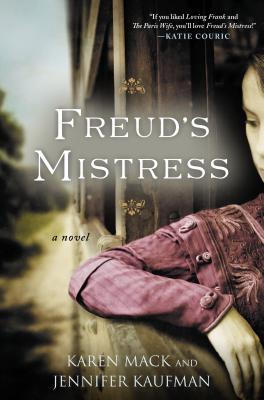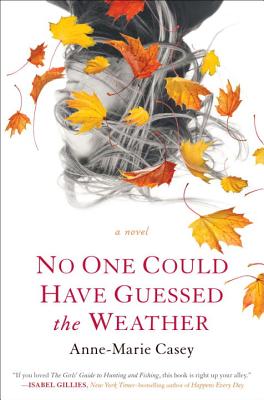His theories would change the world—and tear hers apart.
A page-turning novel inspired by the true-life love affair between Sigmund Freud and his sister-in-law.
It is fin-de-siècle Vienna and Minna Bernays, an overeducated lady’s companion with a sharp, wry wit, is abruptly fired, yet again, from her position. She finds herself out on the street and out of options. In 1895, the city may be aswirl with avant-garde artists and revolutionary ideas, yet a woman’s only hope for security is still marriage. But Minna is unwilling to settle. Out of desperation, she turns to her sister, Martha, for help.
Martha has her own problems—six young children and an absent, disinterested husband who happens to be Sigmund Freud. At this time, Freud is a struggling professor, all but shunned by his peers and under attack for his theories, most of which center around sexual impulses. And while Martha is shocked and repulsed by her husband’s “pornographic” work, Minna is fascinated.
Minna is everything Martha is not—intellectually curious, engaging, and passionate. She and Freud embark on what is at first simply an intellectual courtship, yet something deeper is brewing beneath the surface, something Minna cannot escape.
In this sweeping tale of love, loyalty, and betrayal—between a husband and a wife, between sisters—fact and fiction seamlessly blend together, creating a compelling portrait of an unforgettable woman and her struggle to reconcile her love for her sister with her obsessive desire for her sister’s husband, the mythic father of psychoanalysis.
A page-turning novel inspired by the true-life love affair between Sigmund Freud and his sister-in-law.
It is fin-de-siècle Vienna and Minna Bernays, an overeducated lady’s companion with a sharp, wry wit, is abruptly fired, yet again, from her position. She finds herself out on the street and out of options. In 1895, the city may be aswirl with avant-garde artists and revolutionary ideas, yet a woman’s only hope for security is still marriage. But Minna is unwilling to settle. Out of desperation, she turns to her sister, Martha, for help.
Martha has her own problems—six young children and an absent, disinterested husband who happens to be Sigmund Freud. At this time, Freud is a struggling professor, all but shunned by his peers and under attack for his theories, most of which center around sexual impulses. And while Martha is shocked and repulsed by her husband’s “pornographic” work, Minna is fascinated.
Minna is everything Martha is not—intellectually curious, engaging, and passionate. She and Freud embark on what is at first simply an intellectual courtship, yet something deeper is brewing beneath the surface, something Minna cannot escape.
In this sweeping tale of love, loyalty, and betrayal—between a husband and a wife, between sisters—fact and fiction seamlessly blend together, creating a compelling portrait of an unforgettable woman and her struggle to reconcile her love for her sister with her obsessive desire for her sister’s husband, the mythic father of psychoanalysis.
From the author of Miss Garnet’s Angel, a story of the redemptive power of love and community in the famous French cathedral town
There is something very special about Agnès Morel. A quiet presence in the small French town of Chartres, she can be found cleaning the famed medieval cathedral each morning and doing odd jobs for the townspeople. No one knows where she came from or why. Not Abbé Paul, who discovered her one morning twenty years ago, sleeping on the north porch, and not Alain Fleury, the irreverent young restorer who works alongside her each day and whose attention she catches with her tawny eyes and elusive manner. She has transformed each of their lives in her own subtle way, yet no one suspects the dark secret Agnès is hiding.
When an accidental encounter dredges up a series of tragic incidents from Agnès’s youth, the nasty meddling of town gossips threatens to upend the woman’s simple, peaceful life. Her story reveals a terrible loss, a case of mistaken identity, and a cruel and violent act that haunts her past. Agnès wrestles with her own sense of guilt and enduring heartbreak while the citizens piece together the truth about her life.
Sometimes what you want in your twenties isn’t what you want or need in your forties. . . .
When Lucy Lovett’s husband loses his job, she is forced to give up her posh life in London and move their family to a tiny apartment in Manhattan, where her husband has managed to secure a lowly position. Lucy finds herself living in the center of cool and hip. Across from their apartment is a trendy bar called PDT—whenever Lucy passes by, she thinks, Please Don’t Tell anyone I’m a middle-aged woman.
Homesick and resentful at first, Lucy soon embarks on the love affair of her life—no, not with her husband (though they’re both immensely relieved to discover they do love each other for richer or poorer), but with New York City and the three women who befriend her.
There’s Julia, who is basically branded with a Scarlet A when she leaves her husband and kids for a mini nervous breakdown and a room of her own; Christy, a much older man’s trophy wife, who is a bit adrift as only those who live high up in penthouses can be; and disheveled and harried Robyn, constantly compensating for her husband, who can’t seem to make the transition from wunderkind to adult.
Spot-on observant, laugh-out-loud funny, yet laced with kindness through and through, No One Could Have Guessed the Weather is a story of what happens when you grow up and realize the middle part of your story might just be your beginning.
There is something very special about Agnès Morel. A quiet presence in the small French town of Chartres, she can be found cleaning the famed medieval cathedral each morning and doing odd jobs for the townspeople. No one knows where she came from or why. Not Abbé Paul, who discovered her one morning twenty years ago, sleeping on the north porch, and not Alain Fleury, the irreverent young restorer who works alongside her each day and whose attention she catches with her tawny eyes and elusive manner. She has transformed each of their lives in her own subtle way, yet no one suspects the dark secret Agnès is hiding.
When an accidental encounter dredges up a series of tragic incidents from Agnès’s youth, the nasty meddling of town gossips threatens to upend the woman’s simple, peaceful life. Her story reveals a terrible loss, a case of mistaken identity, and a cruel and violent act that haunts her past. Agnès wrestles with her own sense of guilt and enduring heartbreak while the citizens piece together the truth about her life.
Sometimes what you want in your twenties isn’t what you want or need in your forties. . . .
When Lucy Lovett’s husband loses his job, she is forced to give up her posh life in London and move their family to a tiny apartment in Manhattan, where her husband has managed to secure a lowly position. Lucy finds herself living in the center of cool and hip. Across from their apartment is a trendy bar called PDT—whenever Lucy passes by, she thinks, Please Don’t Tell anyone I’m a middle-aged woman.
Homesick and resentful at first, Lucy soon embarks on the love affair of her life—no, not with her husband (though they’re both immensely relieved to discover they do love each other for richer or poorer), but with New York City and the three women who befriend her.
There’s Julia, who is basically branded with a Scarlet A when she leaves her husband and kids for a mini nervous breakdown and a room of her own; Christy, a much older man’s trophy wife, who is a bit adrift as only those who live high up in penthouses can be; and disheveled and harried Robyn, constantly compensating for her husband, who can’t seem to make the transition from wunderkind to adult.
Spot-on observant, laugh-out-loud funny, yet laced with kindness through and through, No One Could Have Guessed the Weather is a story of what happens when you grow up and realize the middle part of your story might just be your beginning.



No comments:
Post a Comment